Mayfair Design District 2025 professes converging cultures Beyond Boundaries
by Bansari PaghdarSep 30, 2025
•make your fridays matter with a well-read weekend
by Aarthi MohanPublished on : Nov 25, 2023
Ever wondered why architecture often feels like it’s playing by the rules of taste, sticking to the expected and the usual? Amidst the landscape of architecture where design choices are often tethered to taste principles, GRAFT, a Los Angeles-based studio, emerges as a breath of fresh air. Echoing the sentiments of American art critic Dave Hickey, a close confidante of the firm, who once said, 'Taste is the lack of appetite’, the urban design firm has adopted this phrase as more than a mere observation; it has evolved into their guiding manifesto. Their interpretation goes beyond the ordinary, it is an ideology that advocates for approaching creativity with unbounded curiosity, free from the constraints of established taste. In honour of their 25th anniversary, GRAFT unveiled an exhibition titled Taste is the Lack of Appetite at the Aedes Architecture Forum, Berlin, Germany. On view from October 28-December 5, 2023, this exhibition not only reflects on the practice’s diverse architectural journey but underscores their deep commitment to socially engaged projects that challenge conventions.
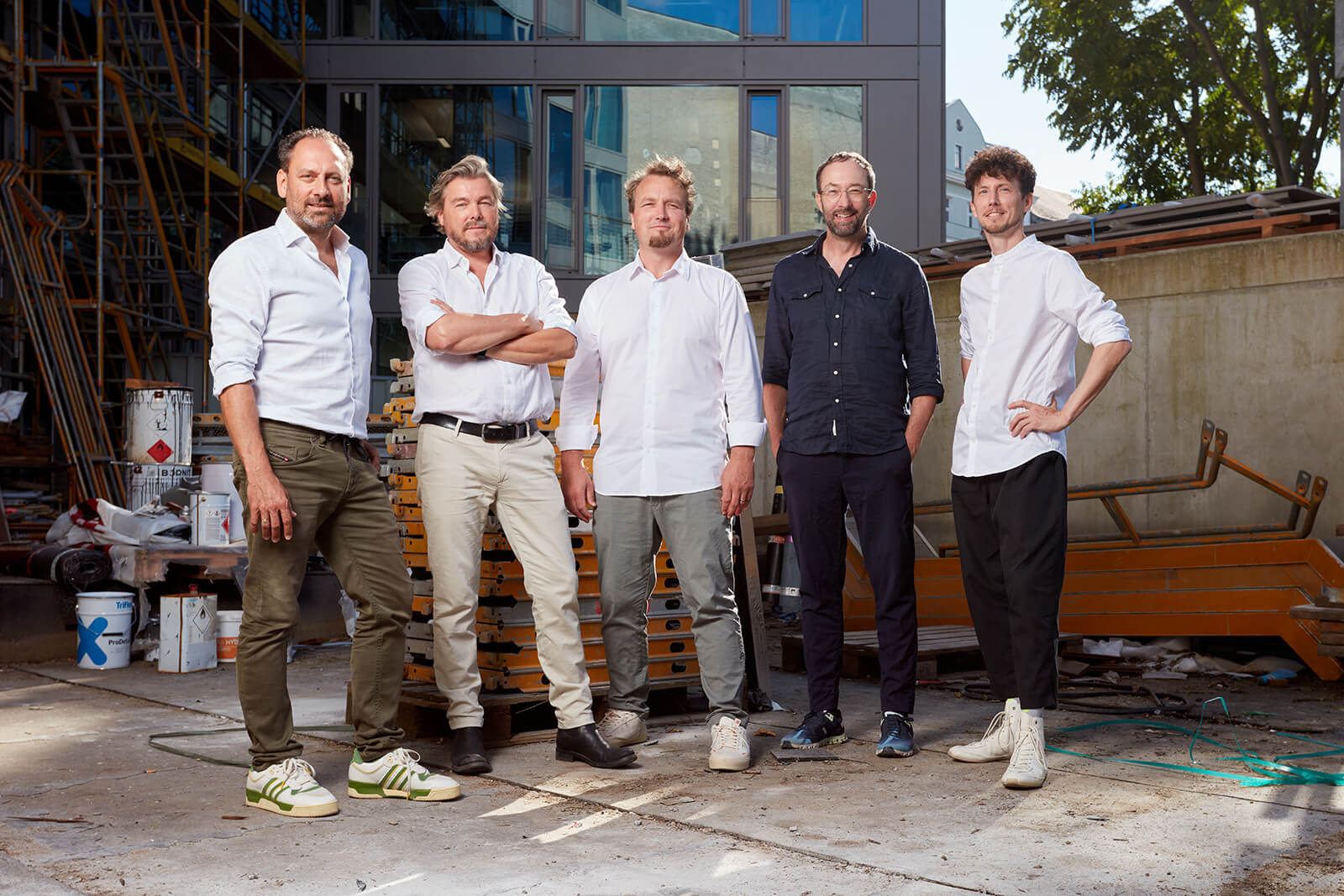
This celebration, focusing on the special, the unique and the unexpected, puts a spotlight on the practice’s profound dedication to community-driven architecture, showcasing how their designs extend beyond aesthetics to address the fundamental needs of diverse communities. At the heart of the design firms' ethos is a deep understanding that the built environment is not just a collection of structures but a canvas upon which the happiness and quality of life of its inhabitants are painted. The partners of the studio namely Sven Fuchs, Lars Kruckeberg, Wolfram Putz, Georg Schmidthals and Thomas Willemeit recognise their role in responding to global crises, viewing their work as a call to action. The design practice is a marriage of optimism and experimentation, resulting in hybrid solutions that transcend traditional architecture boundaries.
The immersive exhibition not only showcases the practice’s realised and ongoing projects but also delves into the concept of Architecture Activism. This is a transformative approach that sees architects as advocates of societal change. It involves actively engaging with communities, understanding their needs and using design as a tool to address pressing social and environmental challenges. Architects adopting an activism mindset work towards creating spaces that promote inclusivity, sustainability and resilience. The design firm’s commitment to initiatives like the Unbuilding walls exhibition and the Solarkiosk project demonstrates their belief in architecture as a medium for activism, transcending conventional boundaries to make a positive impact on the world.
The exhibition space is thoughtfully divided into two distinct worlds, each offering a unique lens into the design expertise of the firm. Stepping into the first room, visitors are immersed in the essence of collaborative architecture, symbolised by the Solarkiosk project. A contemporarily designed intervention in remote regions of Africa, this prototype which is displayed in the first room ensures a sustainable supply of energy, connectivity and communication through clean solar energy, embodying a post-colonial social model.
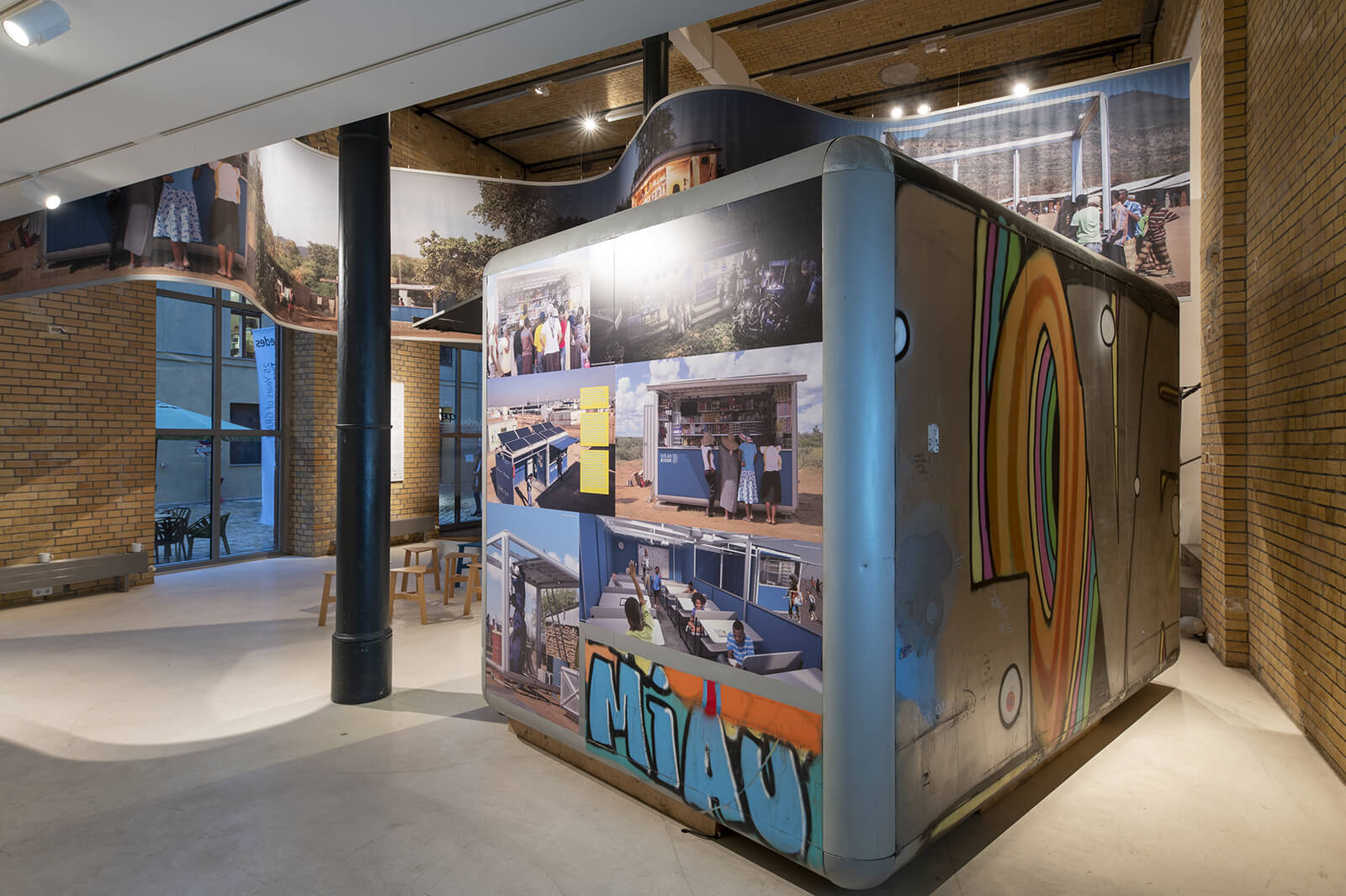
The practice's commitment to social engagement is exemplified by their involvement in projects such as the 'Make it Right Foundation', aiding the rebuilding of New Orleans post-Hurricane Katrina. The firm continued its philanthropic efforts with foundations and the Kreditanstalt fur Wiederaufbau (Credit Institute for Reconstruction, KfW). Notably, the founding of the Solarkiosk company in collaboration with Andreas Spieb in 2012 stands as a testament to their belief that solutions for both urban and rural environments can only be achieved through collaboration.
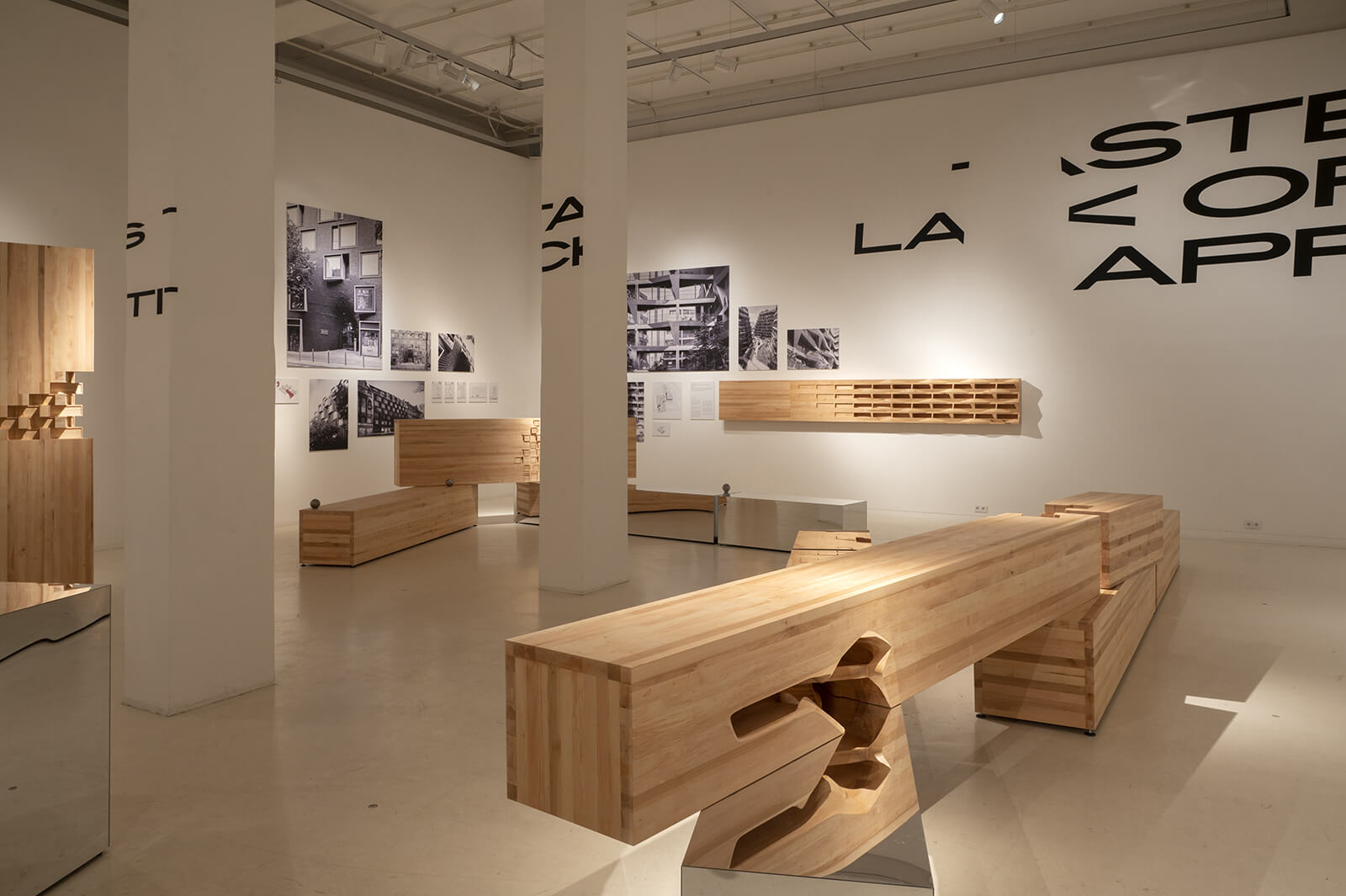
What sets the practice apart is its dedication to sounding out open spaces of experimentation and creativity even under challenging conditions. The design exhibition presents a selection of residential, mixed-use and cultural buildings, each reflecting on the firm’s design strategies. Ranging from new constructions to historical revitalisations, these strategies include lofting, tracing, voxelisation, sectioning, weaving and carving. The second room features six diverse buildings stripped down to their core message through large-format models. This space serves as a testament to the firm's ability to craft unexpected and radical designs, each narrative pulsating with the essence of the building’s purpose. The six model projects that are showcased are as follows:
Currently emerging near Berlin’s Ostkreuz, this project unveils the firm’s avant-garde approach. Marked by serially arranged bay windows interlocking at corners akin to traditional wooden joints, this ongoing project is more than an office space, but a reflection of the firm’s dedication to innovative design. With visible wooden surfaces shaping interiors and extending into urban spaces, the A LASKA project fuses modernity and tradition into concrete architecture.
In Munich, GRAFT breathes new life into history with the conversion and expansion of Germany’s oldest youth hostel dating back to times immemorial. This visionary project, extending its embrace into 2023, showcases their work in historical preservation. Beyond brick and mortar, it’s a transformative narrative; a modern story woven into the hostel’s historic fabric.
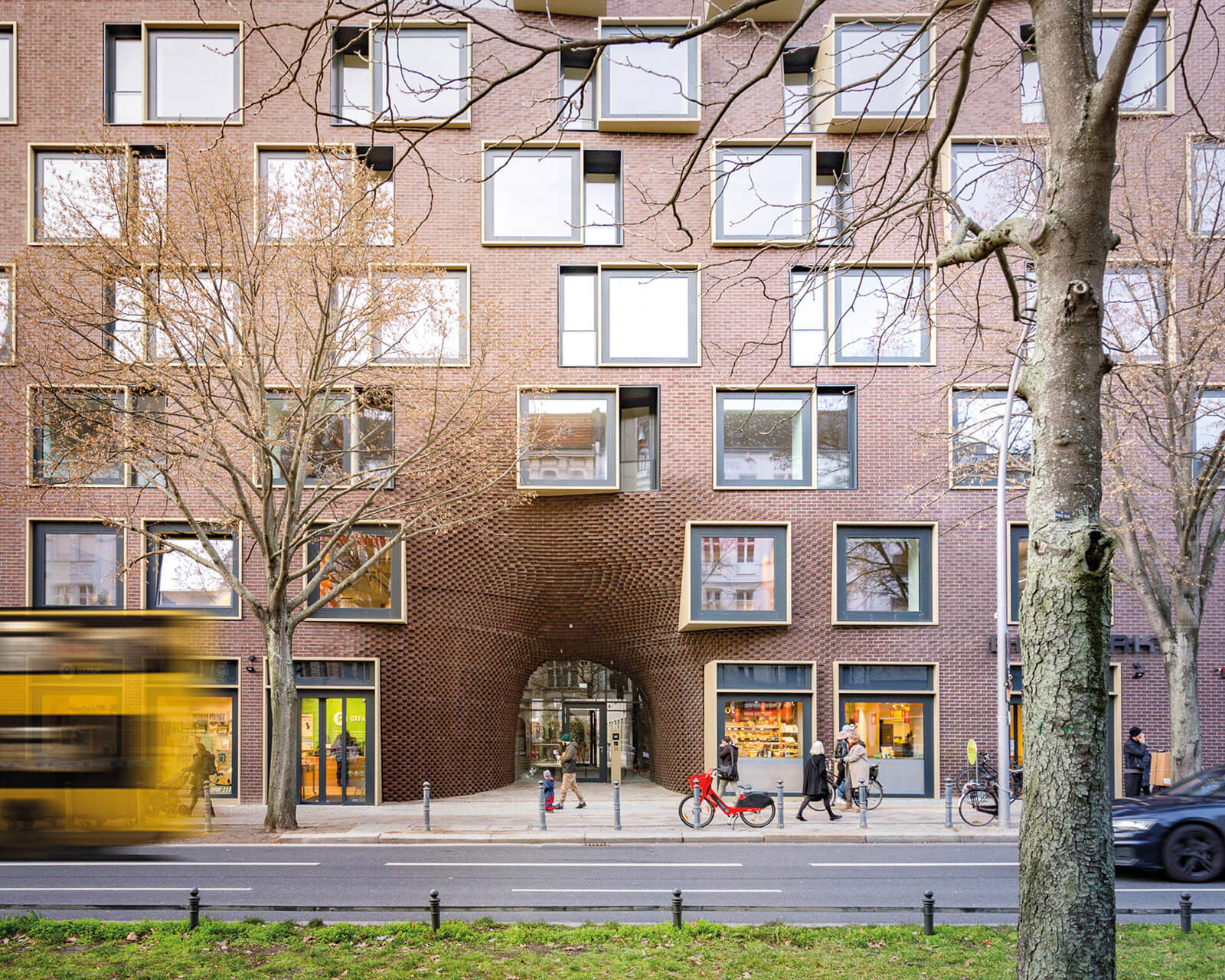
Turning back the pages of time, BRICKS is the practice’s ode to revitalising historical post-office areas. Completed in 2021, this project masterfully fuses the old and the new. The new buildings were equipped with brick facades in order to blend into the historic ensemble. By means of cutting-edge technology, brick architecture and geometry, historical monuments and the parametric design strategies of the 21st century were artfully combined.
The residential design project, comprising three eight-storey main buildings, along with townhouses situated near checkpoint Charlie harmoniously fuses modern architecture with historic allure. The firm's focus here goes beyond just construction, aiming to integrate contemporary lifestyles into the rich tapestry of history.
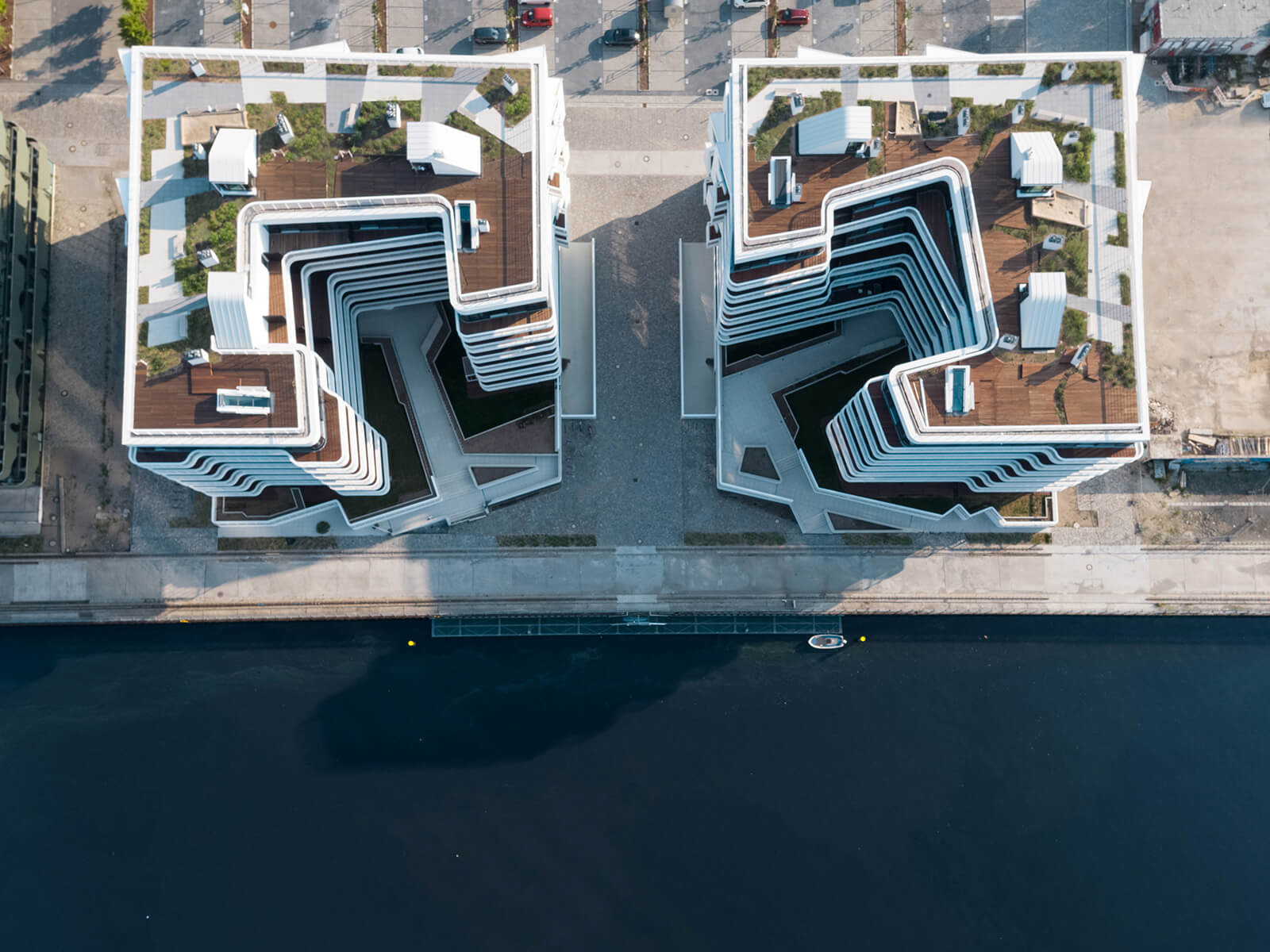
On the banks of the river Spree, this project represents GRAFT’s modern architectural expression. These residential buildings, a visual poetry against Berlin’s waterfront, showcase the firm’s commitment to creating structures that resonate with the city’s scenic beauty.
In 2007, the firm envisioned a dream for the Jewish museum in Moscow, a project tied to the conversion of the Bakhmetevsky bus garage designed by Konstantin Melkinov. Although unrealised, this project remains proof to the firm’s pursuit of innovative designs, emphasising that architecture is about chasing dreams woven into concrete plans.
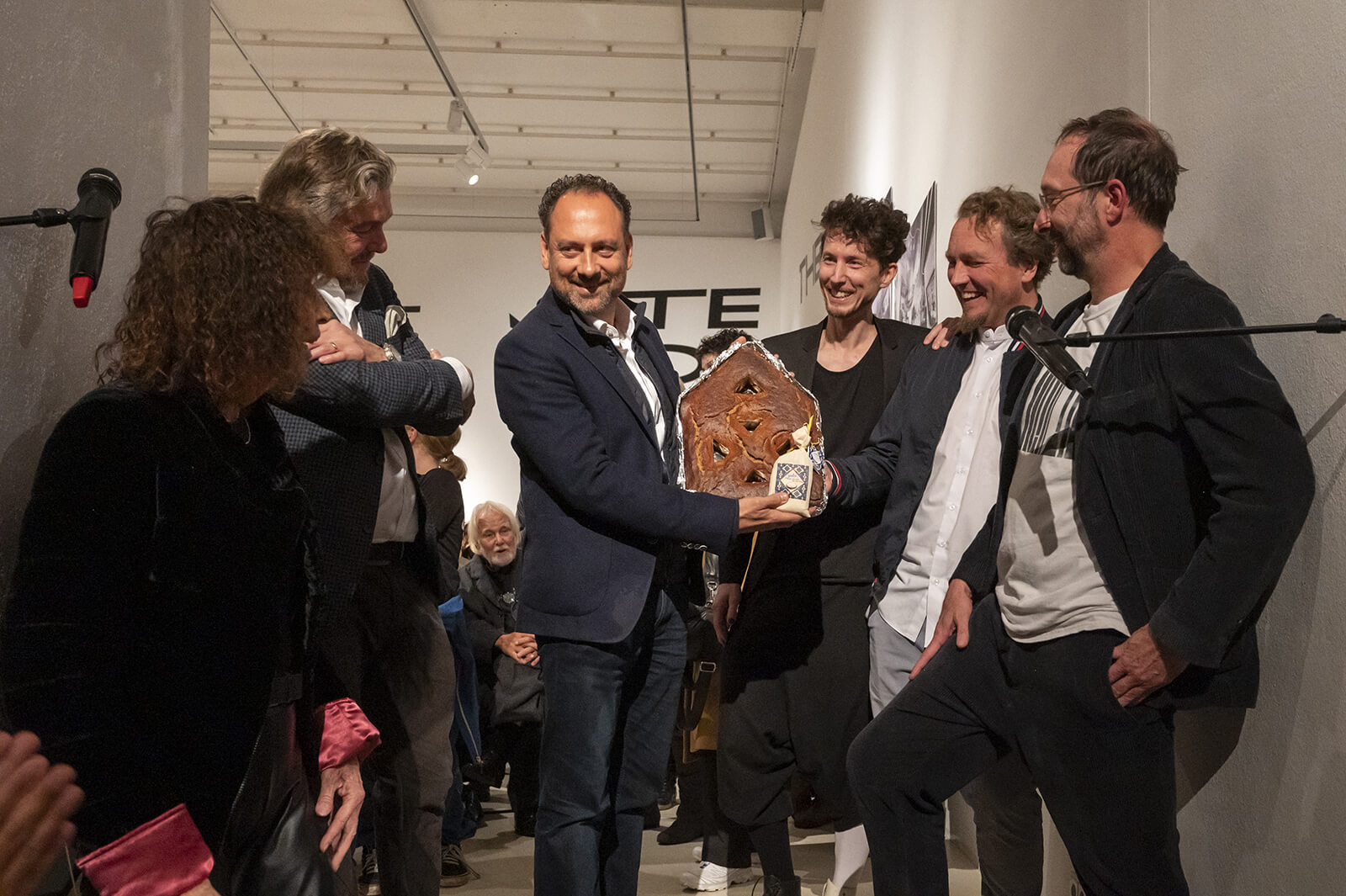
GRAFT’s journey starting in Los Angeles in 1998 and expanding to Berlin, Munich, Shanghai and Seoul, reflects a studio that goes beyond conventional architectural practice. Their interest in crossing boundaries between disciplines is evident in their expansion into curating exhibitions and product design, art installations and academic projects. The firm sees architecture not as a self-contained discipline but as a cultural technique; an ever-evolving representation of society. In a world where identity is crucial, the firm responds to the challenges of the future with an optimistic attitude towards multiple and simultaneous identities, believing that hybridisation enhances the qualities of its constituent characteristics.
This Aedes exhibition by GRAFT is more than just a celebration of architectural milestones; it is a testament to their belief of social openness, ingenuity, heterogeneity and diversity. Embracing the mantra “Taste is the lack of appetite”, the firm elevates these principles over rigid conformity and staunch defence of tradition. In a world where architecture plays a fundamental role in defining identity, GRAFT’s hybrid approaches beckon us to explore a future where innovation and social consciousness go hand in hand.
The exhibition ‘Taste is the Lack of Appetite' is on view until December 5, 2023, at the Aedes Architecture Forum, Berlin.
by Bansari Paghdar Oct 16, 2025
For its sophomore year, the awards announced winners across 28 categories that forward a contextually and culturally diverse architectural ecosystem.
by Mrinmayee Bhoot Oct 14, 2025
The inaugural edition of the festival in Denmark, curated by Josephine Michau, CEO, CAFx, seeks to explore how the discipline can move away from incessantly extractivist practices.
by Mrinmayee Bhoot Oct 10, 2025
Earmarking the Biennale's culmination, STIR speaks to the team behind this year’s British Pavilion, notably a collaboration with Kenya, seeking to probe contentious colonial legacies.
by Sunena V Maju Oct 09, 2025
Under the artistic direction of Florencia Rodriguez, the sixth edition of the biennial reexamines the role of architecture in turbulent times, as both medium and metaphor.
 surprise me!
surprise me!
make your fridays matter
SUBSCRIBEEnter your details to sign in
Don’t have an account?
Sign upOr you can sign in with
a single account for all
STIR platforms
All your bookmarks will be available across all your devices.
Stay STIRred
Already have an account?
Sign inOr you can sign up with
Tap on things that interests you.
Select the Conversation Category you would like to watch
Please enter your details and click submit.
Enter the 6-digit code sent at
Verification link sent to check your inbox or spam folder to complete sign up process



by Aarthi Mohan | Published on : Nov 25, 2023
What do you think?